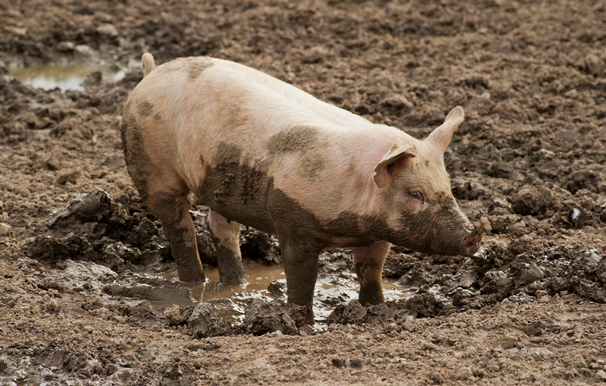Human Diarrhea Parasite Found Lurking in Piglets

An intestinal parasite that causes diarrhea in humans also makes its home in pigs.
The existence of the single-celled parasite, Dientamoeba fragilis, in pigs is important, the researchers explain, because it might mean pig feces are one way the parasite has been spreading to humans. More than a billion pigs are housed in farms across the world.
In developed countries, D. fragilis infection rates in people hover around 2 percent to 4 percent. But in developing countries where waste disposal is poor, infection rates of between 19 percent and 69 percent have been reported. Travelers to these countries also often fall prey to the parasite. Infection is sometimes asymptomatic, but it can also cause diarrhea and abdominal pain.
Few animal hosts, or "reservoirs," for D. fragilis had been discovered, researchers reported today (April 11) in the journal Emerging Infectious Diseases published by the Centers for Disease Control and Prevention. Pigs in Italy, however, were reported as having high infection rates. So Italian scientists collected and analyzed 152 fecal samples from nine farms. They found that 52 of 74 piglets, 11 of 14 pigs at the "fattening" stage. and eight of 64 sows tested positive for D. fragilis. Young animals appeared to be most susceptible.
Furthermore, the analysis showed that the parasite found in pigs was the same one that infects humans. That means pigs could transmit the parasite to humans, likely through their waste.
The researchers noted that the discovery could be a boon to understanding D. fragilis. Little is known about the parasite's life cycle, and pigs could provide a useful model for understanding how transmission and infection occurs, the researchers said.
You can follow LiveScience senior writer Stephanie Pappas on Twitter @sipappas. Follow LiveScience for the latest in science news and discoveries on Twitter @livescience and on Facebook.
Sign up for the Live Science daily newsletter now
Get the world’s most fascinating discoveries delivered straight to your inbox.

Stephanie Pappas is a contributing writer for Live Science, covering topics ranging from geoscience to archaeology to the human brain and behavior. She was previously a senior writer for Live Science but is now a freelancer based in Denver, Colorado, and regularly contributes to Scientific American and The Monitor, the monthly magazine of the American Psychological Association. Stephanie received a bachelor's degree in psychology from the University of South Carolina and a graduate certificate in science communication from the University of California, Santa Cruz.









